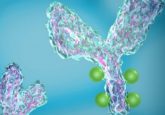The emerging role of immunotherapy in gastric and esophageal adenocarcinoma

Gastric and esophageal adenocarcinomas are aggressive malignancies. Systemic therapy for these tumors relies primarily on cytotoxic chemotherapy but outcomes remain poor. In recent years, immunotherapy has emerged as a new, promising therapeutic approach for a variety of solid tumors. Characterization of gastroesophageal cancers has revealed genomic and immune features of these tumors that may predict response to immunotherapy. Indeed, preliminary results from the initial trials of immune checkpoint inhibitors have been encouraging, with objective response rates of 20% in heavily pretreated patient populations. Based on these results, additional trials of single-agent checkpoint inhibitors as well as combinations with chemotherapy and targeted therapies are currently ongoing. Further work to identify predictive biomarkers will be crucial for the successful implementation of immunotherapy.
With almost one million new cases per year, gastric cancer is the fifth most common cancer and the third leading cause of death worldwide. Esophageal cancer is the eighth most common malignancy and the sixth most common cause of death [1]. Sadly, with the majority of patients presenting with advanced disease at the time of the diagnosis, palliative chemotherapy with platinum and fluoropyrimidine-based regimens remains the primary treatment modality and outcomes remain largely stagnant over decades [2].
Click here to view the full article in Future Oncology.





